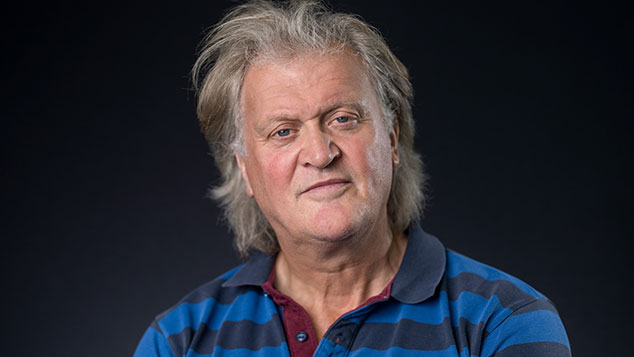
It’s 18 months since the referendum, but many business leaders are still reluctant to get publicly involved in the debate over what type of Brexit the government should pursue. But Tim Martin – founder and chairman of JD Wetherspoon, which runs almost 1,000 pubs, bars and hotels – is certainly not one.
Martin released a “Brexit manifesto” printed on 500,000 beer mats last November. He has agreed to talk to us about how Brexit is affecting his company and what he wants from the process.
As a company that operates almost exclusively in the UK, Wetherspoon has been largely unaffected by the referendum so far. The only effect come from the fall in the value of sterling. Because Wetherspoon imports a large amount of its food, “the weaker pound has pushed up our costs”, admits Martin, although the increase has been “relatively small, around 2% of total costs”. The business was affected more by last year’s rises in beer duty and the minimum wage.
Martin is optimistic about the direction of the UK economy, and is extremely sceptical of what he sees as the “scare stories” from the CBI and BRC (British Retail Consortium), about Brexit’s effect on the economy. The only problem would be if the UK took advantage of leaving the EU to impose new regulations. This could end up being expensive, especially in the short run, “since the biggest problem that businesses face with red tape doesn’t come from the rules themselves, but the one-off cost of having to change your systems”.
A three-point plan for Britain
Martin’s manifesto has three main elements. Firstly, the government should give British citizenship to EU citizens currently living and working here. This would “be good for the economy” and “generate goodwill from the rest of Europe”, and would be a reflection of reality, since “there are no circumstances under which the government would want to start repatriating large numbers of Europeans”. However, in the longer-term Martin would like immigration policy to be determined by the UK, rather than by “the oligarchs of Brussels”. In his view the UK should adopt a point-based system “like Australia, New Zealand and Singapore”.
Martin is sceptical about the idea of a brain drain, with EU citizens returning to the continent creating labour shortages. He’s seen some evidence that “small numbers of Europeans are going back home” and there are definitely “less of them going to the UK”. But this is more a reflection of the fact that, as many of the former communist countries catch up with Britain’s standard of living, the UK becomes less attractive. Overall, while he predicts that employers like Wetherspoon, “will have to work a little harder to find workers, that’s the way it should be”.
The second policy that Martin wants the UK government to adopt is the unilateral abolition of tariffs and quotas on agricultural products. As the repeal of the Corn Laws in the 19th century demonstrated, cheaper food benefits everyone, especially British consumers, since restaurants and pubs would be able to “pass on modest reductions in prices to consumers”. Free trade in agriculture would “slay the myth that food prices will go up after Brexit”. Another benefit of leaving the EU is that “we would be free to determine our own food standards, so if we wanted to continue banning GM foods we could”.
The final part of his plan is to immediately end all budgetary payments to Brussels. Martin thinks that they are unfair, “because no other country in the world is paying for trade”. Indeed, the budgetary contributions are particularly galling since, Britain’s trade deficit with Europe means that the “rest of the EU benefits more from the trade than the UK”. He also thinks that it is “hypocritical for the EU to criticise Donald Trump for protectionist measures while threatening to impose even more barriers to trade with the UK”.
Leave quickly and replicate existing trade agreements
Martin is not swayed by the argument that such payments are necessary to ensure a smooth transition. “Not one businessman has said to me that leaving the EU will be hard”. Indeed, “as far as I can see we could easily leave next week”. When Britain does leave, Martin thinks that we should quickly work with Canada and South Korea to replicate existing trade agreements. “Next we should focus on countries that we have a strong relationship with like Australia and New Zealand”
Finally, Martin is confident that Britain can secure agreements with India, China and South Korea. After all, “the EU has not been successful in getting agreements with the top ten global economies”.
Despite his calls for an immediate break with the EU, Martin is surprisingly positive about what the government has done so far. May is “doing OK”. He is worried about the tone of the debate, including the claims of those who want a softer Brexit, and considers the political situation to be “messy”. However, as far as he is concerned, things are ultimately moving in the “right direction”.